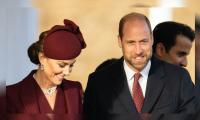‘We have a lot to be proud of as Pakistanis’
I am proud that as a child I opted to come to Pakistan. The love affair has been growing.
These patriotic views were expressed by former federal minister, senator and noted intellectual Javed Jabbar while speaking at the launch of his book, “What is Pakistaniat?”, at the Adab Festival Pakistan at the Sindh Governor’s House on Saturday.
“The love affair has been growing,” he said. As for national identity, he said that it would evolve over the course of time as it was a historical process.
Jabbar listed 41 constituent elements (30 positive and 11 negative) that, he said, shaped the unique national identity of the Pakistani nation.
Among the positives, he listed:
- Proud to be a Muslim in a predominantly Muslim nation.
- Proud to be a Muslim in a country in the Muslim region
- Proud to be a citizen of the land boasting the oldest human civilization (Mehergarh)
- Pride in being a Pakistani by choice
- Pride in being in a land also inhabited by the Hindus, Christians, Zorastrians, and others. In fact, he said, these groups were the owners of the land as they lived here much before the Islamic era. He lauded the diversity, which, he said, had its own beauty.
- Unique origin: Nowhere else could we find a country the two wings of which were separated a thousand miles of hostile territory and we managed to co-exist for over two decades.
- Enduring resilience: We formulated five-year plans for development which were so successful that they were replicated by newly developed countries like South Korea and Malaysia.
Pride in belonging to a beautiful country and he enumerated the idyllic natural beauty spots all over the country. Pakistan, he said, was endowed with the most beautiful locations which were a tourists’ paradise.
- Pride in the fact that we Pakistanis are an extremely hospitable and compassionate people.
- An overwhelming majority among us are highly moderate and it was just a handful who are extremists.
- The Pakistani diaspora, which was so widely distributed over the globe, never forgot their motherland and remitted funds so generously which has often seen us out of our economic woes.
- Urdu as a unifying factor: He said that according to statistics, Urdu was the mother tongue of just nine percent of the population but still it was such a binding force that it was understood even in the remotest corners of the country.
Among the 11 negatives he listed were:
- He said that we are always clamouring for democracy yet not more than 50 per cent of the electorate turned up at the polling booths on election day. This, he said, was the height of apathy.
- He said that the standard of education in the public sector institutions was simply deplorable.
- He also listed the degenerating value pattern and the crude behaviour of most of the citizens.
- Another negative he listed was the oppression of the weak by the strong, especially women and children.
- He also listed the propensity to connivance at corruption.
- Another factor he listed was religious intolerance and said that it was just impossible to have a cool, balanced discussion on religion.
- Propensity to digest conspiracy theories he said that we as a people were given to digest conspiracy theories readily.
The session was moderated by Nadya Chishti Mujhid. Asked by the moderator as to what motivated the authoring of the book, he said, “It was because I found that the country had a great future.” Jabbar attributed the grooming of his writing talent to his mother.
-
 Critics Get Honest About 'A Knight Of The Seven Kingdoms'
Critics Get Honest About 'A Knight Of The Seven Kingdoms' -
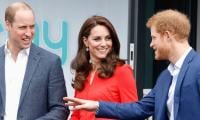 Why Harry Unlikely To Meet William, Kate During UK Return?
Why Harry Unlikely To Meet William, Kate During UK Return? -
 X To Change AI Chatbot 'Grok' After Outrage Over Explicit Deepfake Images
X To Change AI Chatbot 'Grok' After Outrage Over Explicit Deepfake Images -
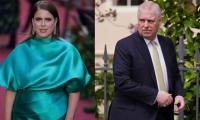 Princess Eugenie Set To Hit New Milestone As Andrew's Eviction Looms
Princess Eugenie Set To Hit New Milestone As Andrew's Eviction Looms -
 Emilia Clarke Gets Honest About Featuring In Shows Like 'Game Of Thrones'
Emilia Clarke Gets Honest About Featuring In Shows Like 'Game Of Thrones' -
 Amazon Employees’ Break-time Fight Ends In Murder In Texas
Amazon Employees’ Break-time Fight Ends In Murder In Texas -
 Peter Jackson Reveals A Viggo Mortensen Mishap In 'LOTR' Fans Totally Missed
Peter Jackson Reveals A Viggo Mortensen Mishap In 'LOTR' Fans Totally Missed -
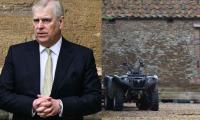 Marsh Farm: Work Underway On Andrew Mountbatten-Windsor's New Home
Marsh Farm: Work Underway On Andrew Mountbatten-Windsor's New Home -
 'Rip' Director Dishes On Matt Damon, Ben Affleck's ‘brotherly’ Dynamic
'Rip' Director Dishes On Matt Damon, Ben Affleck's ‘brotherly’ Dynamic -
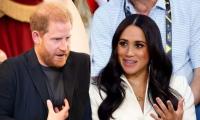 Meghan Markle Handed Strict Warning: ‘You’re Playing With Fire In A High Risk, High Noise’ Game’
Meghan Markle Handed Strict Warning: ‘You’re Playing With Fire In A High Risk, High Noise’ Game’ -
 Paul McCartney Reveals How Close He Came To Giving Up Music
Paul McCartney Reveals How Close He Came To Giving Up Music -
 Kate Middleton’s Secret Message Decoded: ‘She’s Done With All This!’
Kate Middleton’s Secret Message Decoded: ‘She’s Done With All This!’ -
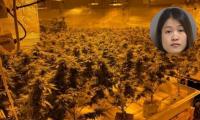 Police Uncover Secret Cannabis Empire Ran By New York Woman
Police Uncover Secret Cannabis Empire Ran By New York Woman -
 'Euphoria' Season Three Trailer Shows Chaotic Life After High School
'Euphoria' Season Three Trailer Shows Chaotic Life After High School -
 Marisa Abela Opens Up About Impact Of Cancer Treatment On Lifestyle
Marisa Abela Opens Up About Impact Of Cancer Treatment On Lifestyle -
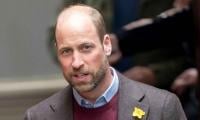 Kensington Palace Shares Video Of Windsor Castle Ceremony
Kensington Palace Shares Video Of Windsor Castle Ceremony



